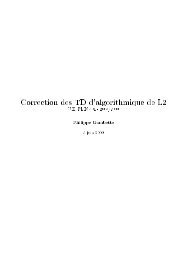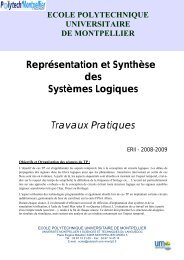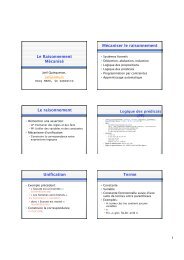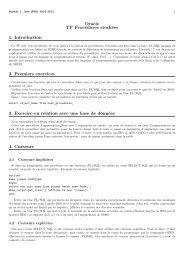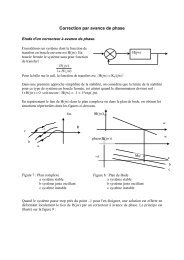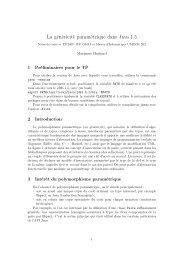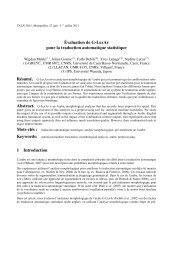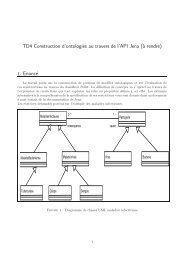Evaluating User Experience in Games: Concepts and Methods - Lirmm
Evaluating User Experience in Games: Concepts and Methods - Lirmm
Evaluating User Experience in Games: Concepts and Methods - Lirmm
You also want an ePaper? Increase the reach of your titles
YUMPU automatically turns print PDFs into web optimized ePapers that Google loves.
Chapter 4<br />
Assess<strong>in</strong>g the Core Elements of the Gam<strong>in</strong>g<br />
<strong>Experience</strong><br />
Eduardo H. Calvillo-Gámez, Paul Cairns, <strong>and</strong> Anna L. Cox<br />
Abstract This chapter presents the theory of the Core Elements of the Gam<strong>in</strong>g<br />
<strong>Experience</strong> (CEGE). The CEGE are the necessary but not sufficient conditions<br />
to provide a positive experience while play<strong>in</strong>g video-games. This theory, formulated<br />
us<strong>in</strong>g qualitative methods, is presented with the aim of study<strong>in</strong>g the gam<strong>in</strong>g<br />
experience objectively. The theory is abstracted us<strong>in</strong>g a model <strong>and</strong> implemented<br />
<strong>in</strong> questionnaire. This chapter discusses the formulation of the theory, <strong>in</strong>troduces<br />
the model, <strong>and</strong> shows the use of the questionnaire <strong>in</strong> an experiment to differentiate<br />
between two different experiences.<br />
In lov<strong>in</strong>g memory of Samson Cairns<br />
4.1 The <strong>Experience</strong> of Play<strong>in</strong>g Video-games<br />
The experience of play<strong>in</strong>g video-games is usually understood as the subjective relation<br />
between the user <strong>and</strong> the video-game beyond the actual implementation of the<br />
game. The implementation is bound by the speed of the microprocessors of the<br />
gam<strong>in</strong>g console, the ergonomics of the controllers, <strong>and</strong> the usability of the <strong>in</strong>terface.<br />
<strong>Experience</strong> is more than that, it is also considered as a personal relationship.<br />
Underst<strong>and</strong><strong>in</strong>g this relationship as personal is problematic under a scientific scope.<br />
Personal <strong>and</strong> subjective knowledge does not allow a theory to be generalised or<br />
falsified (Popper 1994). In this chapter, we propose a theory for underst<strong>and</strong><strong>in</strong>g the<br />
experience of play<strong>in</strong>g video-games, or gam<strong>in</strong>g experience, that can be used to assess<br />
<strong>and</strong> compare different experiences.<br />
This section <strong>in</strong>troduces the approach taken towards underst<strong>and</strong><strong>in</strong>g the gam<strong>in</strong>g<br />
experience under the aforementioned perspective. It beg<strong>in</strong>s by present<strong>in</strong>g an<br />
E.H. Calvillo-Gámez (B)<br />
División de Nuevas Tecnologías de la Información, Universidad Politécnica de San Luis Potosí,<br />
San Luis Potosí, México<br />
e-mail: e.calvillo@upslp.edu.mx<br />
R. Bernhaupt (ed.), <strong>Evaluat<strong>in</strong>g</strong> <strong>User</strong> <strong>Experience</strong> <strong>in</strong> <strong>Games</strong>, Human-Computer<br />
Interaction Series, DOI 10.1007/978-1-84882-963-3_4,<br />
C○ Spr<strong>in</strong>ger-Verlag London Limited 2010<br />
47




